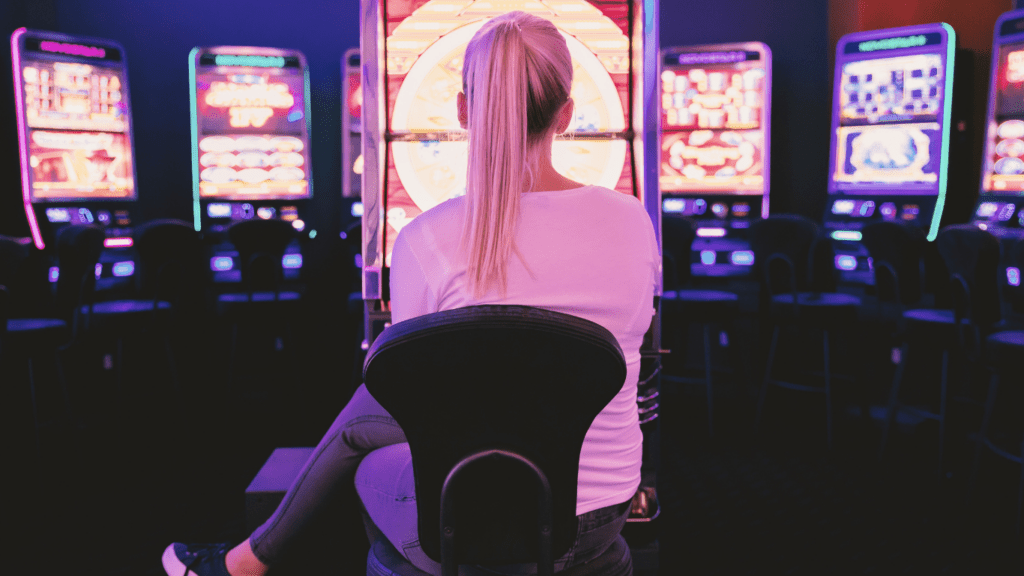Understanding Self-Exclusion
Self-exclusion offers a strategic approach for individuals aiming to manage their slot habits. It acts as a preventive measure against impulsive gambling behavior.
What is Self-Exclusion?
Self-exclusion is a voluntary program where individuals restrict their access to gambling venues and platforms. By enrolling, they place themselves on a list that prohibits entry to casinos or visibility on gambling websites. It serves as a formal commitment to abstain from gambling activities.
How Does Self-Exclusion Work?
Individuals opt for self-exclusion by enrolling through the specific gambling institution or a gambling commission. Registration often requires completing an application and providing identification. The self-exclusion duration varies and can range from six months to a lifetime, depending on the program and personal preference. Once enrolled, casino staff and online platforms actively deny access to those individuals, supporting their decision to curb gambling practices.
The Need for Managing Slot Habits
Managing slot habits proves crucial in preventing the escalation of gambling issues. When left unaddressed, these habits can lead to significant personal and financial challenges.
Recognizing the Signs of Problematic Slot Habits

- Detecting problematic slot habits requires awareness of specific behaviors.
- Excessive time spent on slot machines often indicates a problem, particularly when it interferes with personal responsibilities.
- Frequent mood swings and irritability when unable to engage in slot playing also signal an issue.
- Financial strain, such as borrowing money or neglecting bills to fund slot gaming, further highlights the potential for addiction.
- Acknowledging these signs early facilitates timely intervention and the implementation of management strategies like self-exclusion.
The Impact of Slot Addiction
Slot addiction impacts multiple facets of life. Financial difficulties arise as compulsive players often drain savings and accumulate debt to sustain their gambling.
Relationships suffer due to neglect and deceit as loved ones feel betrayed by the player’s gambling behavior. Additionally, slot addiction may cause mental health issues, including:
- anxiety
- depression
as the individual grapples with loss of control. Understanding these consequences underscores the importance of managing slot habits to maintain a balanced and healthy lifestyle.
Effectiveness of Self-Exclusion Programs
Self-exclusion programs play a significant role in helping individuals manage their slot habits. These programs provide a structured framework for those seeking control over their gambling behavior.
Success Stories
Self-exclusion programs have proven successful for many who’ve struggled with slot addiction. Participants like John, who’ve enrolled in these programs, often report reduced gambling urges and improved financial stability. By creating a barrier between themselves and gambling opportunities, they’ve managed to reclaim time and focus on their personal and professional lives. These success stories highlight the program’s potential to positively impact those committed to change.
Limitations and Challenges
Despite their benefits, self-exclusion programs face limitations. Not all participants experience the desired outcomes; some may find it challenging to resist the temptation to gamble outside the restricted venues. Additional support, such as counseling or therapy, may be necessary to address underlying issues. Also, program effectiveness sometimes depends on individual commitment and the thoroughness of enforcement by gambling establishments. Understanding these challenges can help refine self-exclusion measures and enhance their supportive role.
Alternatives to Self-Exclusion
Exploring other methods can provide additional support in managing slot habits and enhancing self-control. Considering various options gives a broader perspective on constructive ways to address gambling behaviors.
Counseling and Therapy
Talking with professionals offers a personalized approach to managing gambling habits. Therapists can help identify underlying issues driving the behavior. Cognitive Behavioral Therapy (CBT), as recognized by the National Institute of Mental Health, effectively modifies negative thought patterns associated with gambling. Individual or group sessions also allow for shared experiences and offer peer support, which can be immensely encouraging.
Financial Management Strategies
Organizing finances is crucial for those struggling with slot habits. Budgeting creates transparency and helps track spending, making it easier to identify unhealthy financial patterns. Setting spending limits ensures that gambling doesn’t impede on essential expenses. Seeking advice from financial advisors or using tools like budgeting apps can provide structure and discipline. Moreover, allocating money into different accounts can safeguard funds meant for other priorities, ensuring that gambling doesn’t compromise financial security.
How to Implement Self-Exclusion
Implementing self-exclusion involves specific steps and leveraging support systems to manage slot habits effectively.
Steps to Self-Exclude
First, contact the gambling venue or online platform you frequent. Most casinos and online sites have a self-exclusion program. Provide the necessary identification and complete their application process. You’ll choose a length for the exclusion, often ranging from six months to a lifetime. Once enrolled, the venue or platform takes action to deny you access, ensuring you’re not allowed to participate in any gambling activities.
Support Systems Available
Support systems reinforce self-exclusion efforts. Counseling services provide emotional and psychological help. Joining support groups, like Gamblers Anonymous, connects you with others facing similar challenges. Financial advisors can assist in restructuring your budget to prevent gambling from affecting essential expenses. Using these resources complements self-exclusion and strengthens the commitment to managing slot habits.








